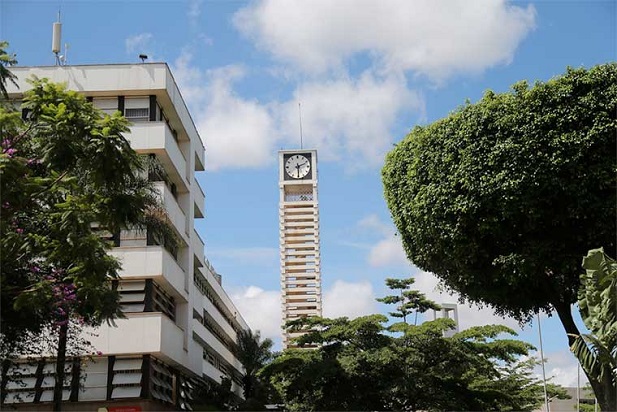Experts have asked the government to compile public a ‘Domestic Arrears Register’ to improve accountability in debt management.
This, according to the experts would also help the public and suppliers to track the unpaid government financial obligations.
In February, the Ministry of Finance, Planning, and Economic Development reported that there were about 500 suppliers and contractors that had outstanding claims on the government.
Last Month, the ministry announced it was releasing almost 662 billion shillings to clear all outstanding domestic arrears, to the excitement of the private sector.
Speaking during the Quarter 1 release of the 2022/23 financial year, Ramadhan Ggoobi, the Permanent Secretary Ministry of Finance warned against the accumulation of domestic arrears.
“All accounting officers must prioritize payment of service providers on time and clearance of domestic arrears to avoid further accumulation of arrears and penalties. Accounting officers who continue to delay clearance of domestic arrears will be held personally accountable,” said Ggoobi.
The arrears arise from supplies of goods and services to the government and do accumulate when the period under which they were budgeted for, passes without them being cleared.
These may include construction of government projects, provision of IT, travel, accounting or transportation services, supply of food and stationery to learning institutions, or even renting of premises for government projects or departments, among others.
The Private Sector Foundation says delays to pay suppliers to affect businesses because a lot of money is usually tied in debt by the government for a long affecting the ability of the private sector to re-invest and grow their business.
Others even fall out of business because they do not have the capital to keep their businesses running, which has discouraged some from dealing with the government, according to the PSFU.
Gilbert Musinguzi, the Quality Assurance Manager at Uganda Debt Network says that the government contractors also take advantage of the expected delays by the government to pay, and they influence the costs.
According to him, the contractors claim that by the time the government clears them, the money they invested and the returns they expected at the sealing of the contract, will have been eroded by inflation and other factors.
Musinguzi however says that apart from increasing the cost of services rendered to the public, the problem with domestic arrears is that they enhance corruption.
He says that as a government department delays to pay, a supplier is compelled to seek ways of influencing payments and these usually include kickbacks to the officials.
Economic analyst and former MP, Stephen Mukitale last week urged the government to put in place laws, and a comprehensive definition of debt, so that it does not only refer to borrowed debt or loans. This, according to Mukitale, gives a wrong picture of the government’s indebtedness and helps the government acquire debt without parliament’s approval.
Mukitale says for example, that the biggest source of Uganda’s indebtedness now is the recoverable costs in the oil and gas industry which will amount to billions of dollars, but is not listed as government debt.
Peninnah Mbabazi, Program Officer, Debt and Aid, SEATINI Uganda says what is worrying is that most of these financial obligations go unreported by the government and this is a loophole for abusing government resources.
She says that unless these items are fully accounted for, the real indebtedness of the country remains unknown, and the country could be in a much worse situation than the debt-to-GDP ratio being officially projected.
Peter Wandera, the Executive Director of Transparency International Uganda says the lack of a domestic arrears register affects the transparency in debt management. He says that the public must know the status of each loan because some could be nonperforming while the taxpayer continues to pay without knowledge of loans, and therefore cannot ask for accountability.
In their call to action this week, CSOs led by SEATINI Uganda and Transparency International Uganda, observed that while Uganda publishes reports on the status of Public Debt, Guarantees, and other financial liabilities and grants, it is too closed to the performance of debt-funded projects.
“There is a need for Government to ensure investment in projects with high returns especially publishing mid-term review reports of loans to avoid the accumulation of non-performing loans.
Collateralized public debt aggravates further such fiscal risks as it often remains hidden from the public and even from parts of government due to widespread misreporting or limited disclosure due to vested interest capture,” the NGOs said.
They also noted that loans for ongoing projects seeking additional financing are approved without scrutinizing their midterm or end-of-project evaluation reports.
These circumstances arise mainly due to political influence and poor planning.





